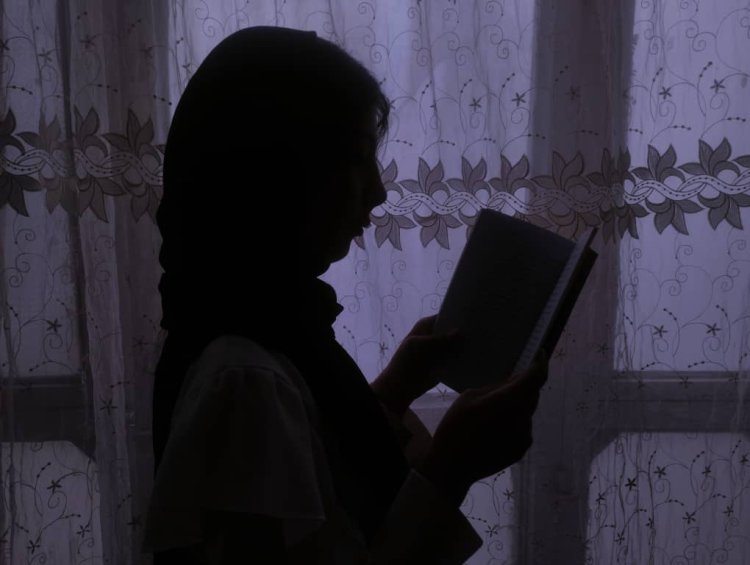Silent Days: A Story of the Internet Blackout

The sky had not yet spread its dark shadow over the earth when I went to my uncle’s house. I was supposed to interview his daughter about the effects of the education ban and record her life on the white pages of my notebook.
Before we began, Susan said it was September 30. So, if I’m not mistaken, now that I’m putting these words together, it must be October 1. I don’t mean that I don’t trust Susan — no. It’s just that I don’t trust my ears anymore.
Sunlight waited impatiently behind the window, eager to sit quietly behind our conversation. I turned on the recorder and placed it beside Susan. Sitting across from her with my notebook and pen, I began asking my questions one by one. She answered — sometimes with laughter, sometimes with tears she dared not shed in front of her mother, and sometimes with a bitter smile.
As soon as we spoke of being barred from school, a cold silence filled the hallway. We both stared at the twisted patterns of the carpet, our tongues tied, our heads bowed. Neither of us dared to break the silence. Susan sat there heavily, her throat filled with years of unspoken grief. Without realizing it, she was tearing mint leaves into small pieces.
The silence broke with the call to prayer, and everyone went to pray. Afterward, we sat again in the same spot and resumed our talk. Before anything else, Susan picked up her phone and said her SIM card was still not working.
She had mentioned it earlier — before we started the interview — but I thought it was only her card. I picked up my own phone and tried calling someone, but the call wouldn’t go through.
What was happening? I stared closely at the screen. Both my SIM cards were dead. A strange unease leapt inside me. An unfamiliar murmur filled the air, and fear deepened the darkness of night — the same fear that had been whispering for two weeks. The blackout had started. Was everything over now?
I couldn’t bear to look at the sorrowful faces in the house. My tongue spoke whatever it wanted.
At that moment, my aunt asked, “So, I can’t talk to my sons anymore?”
A voice answered, “Not for now.”
I don’t know whose voice it was — maybe my own. I don’t know, I really don’t know…
After dinner, I asked my uncle to take me home. We were only five minutes on the road, and the whole time I kept my phone hidden in my sleeve, in case a thief stopped us. My phone is all I have — my treasure — my books are inside it.
When I reached home, I couldn’t hold it in anymore and shouted, “Why don’t people say something? Why don’t they throw these men out?”
Of course, I didn’t scream both questions at once. My mother cut me off, telling me to stay quiet — that no one could stand up to them.
But I couldn’t stay silent, even inside the house. More softly, I asked, “Didn’t they say these people once drove out the Soviets with shovels and pickaxes? What happened now?”
All my mother said was, “People are afraid…”
I didn’t want to argue anymore or hear the word “fear” again. In silence, I picked up To Kill a Mockingbird and asked myself: defending a Black man? What a good man Atticus was! Then I whispered, If only someone would rise to defend a creature called woman in this land.
My heart aches now for every girl born on this soil — even for this earth itself that witnesses such cruelty and stays silent. This same earth beneath which thousands of soulless angels lie buried.
How does it bear such weight?
Why doesn’t it burst from the grief of its daughters’ unrealized dreams?
Why doesn’t it dissolve into air and cry out?
Perhaps this earth betrays us too.
Perhaps it’s friends with those who fill it with lifeless bodies.
Perhaps this soil is not ours at all.
Perhaps, perhaps — and a thousand perhapses circled in my mind until they returned to the silent people who tread upon this faithless land.
Thinking of those who have caged their lives within the single word of Amir al-Mu'minin “the Leader of the Faithful,” I fell asleep. Minutes later, I woke up — the blackout was still in effect. Sitting before the cracked window, I watched the wind tremble through the bodies of sunflowers. Lost in them, I picked up my pen:
I don’t know what will happen next. The sound of car horns reaches my ears, growing louder by the minute. From now on, this is how it will be — the asphalt will cry from too much traffic.
Imagine this: a child goes out to buy bread and doesn’t return. Minutes pass. The mother sends her second son — he disappears too. In the end, the mother goes herself…
My hands tremble. I think someone is missing.
The small birds perched on the mulberry branches begin to sing. They call out to one another. Can they carry my message too? Could they take my voice to the classroom, bring the teacher’s voice back to me, and spread the voices of other girls across the room?
But no — we can’t ask that of these beautiful birds. Otherwise, Amir al-Mu'minin will issue another decree, and no bird will be allowed to fly in this country again. The sky will lose its soul and weep forever for its singers —
unless, of course, the sky is afraid too.
If it fears, then it will shed no tears, and no green will ever grow again…
